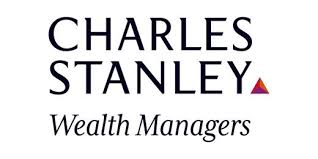This month:
Bears vs bulls...
Monetary policy closely watched.
Bear vs bull case incredibly finely balanced.
Quality key in equities selection.
Technology a hot-spot in otherwise cool conditions.
Featuring this month’s experts:
findaWEALTHMANAGER.com is a gateway to the UK’s leading wealth managers and we regularly tap their expertise for the benefit of our users.
Looking ahead to December, the wider implications of a US rate rise are top of the agenda, with the future of several equity markets a particular focus.
Monetary policy and market moves
Insights from:

Tom Becket, Chief Investment Officer at Psigma, says:
Our asset allocations reflect the change ahead in monetary policy. We expect US shares and government bonds to be dull investments in the medium term and prefer markets where the recovery is still at an early stage and monetary policy is supportive. European and Japanese equities fit the bill and European credit still looks good value. We also admire those markets that have repriced in expectation of a rate hike, so US high-yield credit and elements of emerging market debt are attractive. Some of our calls, such as a positive view on Asian equities, might seem “non-sequiturs” given our view that rates will rise, but we expect a medium-term relief rally to be a key reaction after the Fed raise rates. If they don’t decide to raise rates tomorrow, we would expect a short-term rally, which would peter out quite quickly.
Making calls over psychology and personality, the key components of a Central Banker, is perilously hard, but we feel that the Fed should raise rates and our inclination is that this would be a good thing. Yes, markets have been skittish, but delaying further could easily add to the uncertainty. The US economy no longer deserves a zero interest rate policy. Nine years later the world has moved on; the scars from the financial crisis have healed and the US is recovering.

Tom Becket
Chief Investment Officer at Psigma
An end to the bull market?
Insights from:

Giles Rowe, Chief Executive and Chief Investment Officer at Henderson Rowe, says:
As we stand on the cusp of the first Fed rate rise for nine years, the balance between the bear and bull case has seldom seemed finer or more critical. The vertiginous developed market equity indices, the S&P, All Share and DAX, soar above the last peak in 2007. This strikes fear into the bravest as the bull market’s three main drivers – cheap labour, cheap money and a commodity bonanza – all come to an end at the same time.
There is a lot of anxiety about. This is not to say it is unjustified, but fear tends to be a healthy background for a bull market, and a primary bull market is what the indices listed above still seem to be in. The August sell-off triggered a flight to safety. Secondary corrections have had the same effect in the summers of 2010, 2011, 2012, maybe 2013 and certainly 2014, flushing out the fearful, still scarred by memories of 2007 – 2009.
Of course all good things come to an end. But is the end right now? This recovery is a slow burner and a pretty resilient one. US and EU growth remain intact, and China’s service sector is picking up the baton from infrastructure. While conditions are not strictly comparable, following the start of the last four US rate rises the S&P rose an average 13% in the subsequent 12 months, and 10-year Treasury yields rose less than 1%. The dollar fell. Hardly catastrophic.
The fact is that the impact of the Fed’s rate rise, which Bloomberg now gives a 74% probability of being between 0.25% and 0.5% is likely to have been so heavily flagged it will be a damp squib. Leveraged assets and sectors may come under pressure if rates rise further, but we expect growth to continue for now.

Giles Rowe
Chief Executive and Chief Investment Officer at Henderson Rowe
Solid stock selection critical
Insights from:

Michael Pagliari, partner in investment management at Smith & Williamson, says:
Investors need to brace themselves for interest rate increases certainly in the US and possibly in the UK. It may be intuitive that equity prices should fall. After all, equity prices are simply the present value of future cash flows. If interest rates rise then equity prices mathematically should fall. Empirically, however, the weight of evidence points in the opposite direction. Historically, in the US after a first significant rate hike (1977, 1986, 1994, 2004), and after an initial period of volatility, the S&P 500 has risen by a respectable average of 10% in the first year.
Why might this be so and is it logical? The most obvious explanation is that rising rates are indicative of an improving economy, top-line revenue and earnings growth, which is ultimately what drives equity prices. This time around looks no different, although there are important nuances. The slowdown in China has decimated the commodity sector and affected industries such as engineering companies which are directly, and indirectly, linked to the slowdown in Chinese investment spending. On the other hand, for the first time in many years, we are seeing real increases in wages which is driving the service economy in the US and the UK. Lower commodity prices are keeping inflation down, which is adding to consumer spending power.
The bottom line is that despite so-called China contagion the outlook for equities may not be so gloomy, although careful attention must be paid to stock selection. Companies which are vulnerable to global trade and a strong dollar are vulnerable to downgrades.
Bull markets tend to end with a recession, often induced by tighter Central Bank monetary policy. It looks too early to make this call, although it may not seem that way if a business is exposed to weak commodity prices or their final customers are located in commodity-exporting emerging markets.

Michael Pagliari
Partner in investment management at Smith & Williamson
Technology remains a hot-spot
Insights from:

John Redwood, Chief Global Strategist at Charles Stanley, says:
The old year goes out in a flurry of worry about deflation and recovery delayed. The fears are similar to a year ago, with debates about the slowdown in China, concerns over the weak responses of the eurozone economy as a whole, weak world trade figures and another collapse in commodity prices.
No-one expects much by way of interest rate rises next year in the US, with or without a 0.25% rise this December. Since the Western crash of 2008-9 it has been right to take some more risk in longer-term portfolios to enjoy both capital gains and rising income from real assets. This has worked as long as investors have avoided commodity-based investments and stayed with the main advanced economies. Some emerging economy share markets have made investors money, but they have needed careful watching.
In these conditions it seems inevitable that returns generally are going to be lower than past experience. This is because most share markets have done well since the slump, so you are paying much more to enter, and because the world economy as a whole is in a period of slower growth. Technology remains the hot spot in otherwise cool conditions. The digital revolution powers on, changing working and spending habits. There will continue to be substantial investment in internet technology by business, and further new products which consumers like for their personal use. More automated homes can be good for builders and decorators.
The world is also experiencing high levels of migration, taking enterprising and energetic people to countries and regions with more jobs. This in turn brings forward demand for new homes and for a range of utility and service provision in their new locations. The war-like talk and the continuing terrorist threat is worrying in its own right, but we do not expect it to result in a major military conflict between the main powers, nor to stop the slow world economic recovery continuing.

John Redwood
Chief Global Strategist at Charles Stanley
Eliminate hidden portfolio risks
Insights from:

Lee Goggin, co-founder of findaWEALTHMANAGER.com, says:
More of the same is the theme for this month: lower oil and gold prices, stock markets treading water and fears over the future health of usually reliable dividend payments have focused investors’ minds.
Very soon a host of forecasters, analysts and investment sages will be lining up to share their opinions with us all on the direction of the markets for 2016. It’s a tough job, and I wonder how many predict accurately and consistently. The simple fact is that to try and predict anything in this highly-agitated and confusing world right now is a tough ask.
When I was a DIY investor I believed that with so much information available, like fundamental and technical analysis, tip sheets and expert commentary, I had as good a chance as anyone else. I built a solid strategy and disciplined risk management system, but I just couldn’t devote enough time to maintaining the endeavour – and that was in calmer times. I sympathise with those trying to position their portfolios wisely amid all the geopolitical strife and economic uncertainty surrounding us.
As we look ahead to the New Year, our message to investors is simple: make sure there are no hidden risks lurking in your portfolios, and that the risk exposures you have taken on are appropriate for your aims. It’s difficult to know where to invest to get healthy returns, but always think about risk first.

Lee Goggin
Co-founder of findaWEALTHMANAGER.com
Important information
The investment strategy explanations contained in this piece are for informational purposes only, represent the views of individual institutions, and are not intended in any way as financial or investment advice. Any comment on specific securities should not be interpreted as investment research or advice, solicitation or recommendations to buy or sell a particular security.
We always advise consultation with a professional before making any investment decisions.
Always remember that investing involves risk and the value of investments may fall as well as rise. Past performance should not be seen as a guarantee of future returns.
